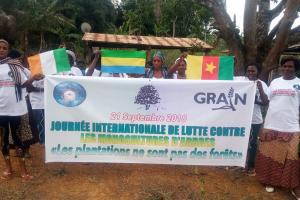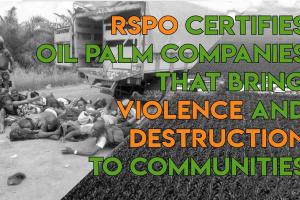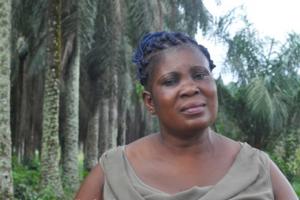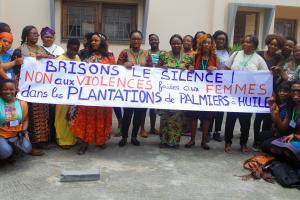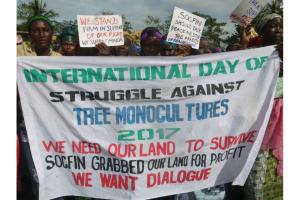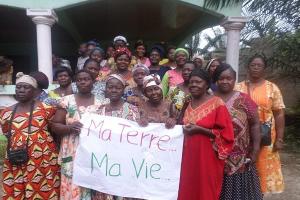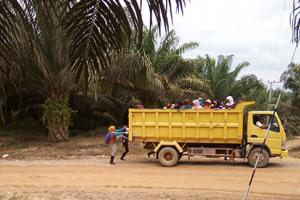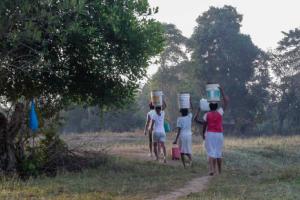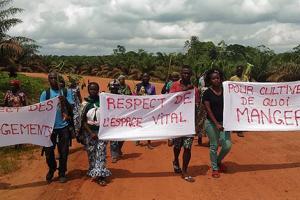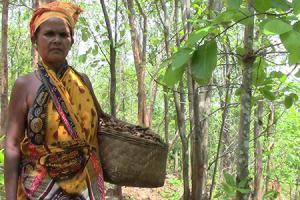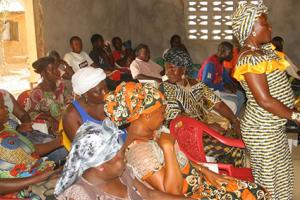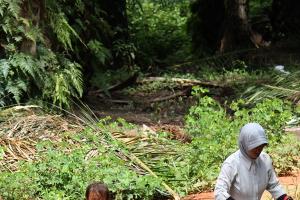Women in Resistance
When forests are destroyed, women in forest-dependent communities are hit hard: Their living conditions are particularly precarious; and providing food, medicine, materials and clean water becomes even harder. The traditional knowledge and wisdom that women pass down from generation to generation are also at risk. That is why women are often on the frontlines of the resistance to forest destruction.
We invite organizations to sign on and support the statement, which denounces that the RSPO, since it was created 14 years ago, has been a tool that served the corporate interests of the oil palm sector
We said it in Mundemba, Cameroon, we reiterated it in Port Loko, Sierra Leone, we re-affirm this in Abidjan, Cote d’Ivoire: the abuse against women in and around industrial oil palm plantations must STOP!
From rapes, forced body searches and searches of private spaces, to the risk of losing their lives: this article calls on us not to be accomplices to the violence women living around tree plantations in Cameroon suffer.
The expansion of oil palm plantations in Indonesia has turned women into landless food buyers and cheap labour, with no adequate safety and health protection, for the plantation companies. (Available in Indonesian).
Contamination of water sources, deplorable working conditions, and sexual blackmail in exchange for work, are some of the kinds of violence against women living in and around oil palm plantations in Guatemala and Colombia.
A woman from the village of Mbonjo 1, Cameroon, which has witnessed the impact of industrial palm oil plantations and the constant presence of the military, calls for international solidarity and protection of right to life and freedom.
India’s programme to compensate for the destruction of forests for development projects is routinely setting up monoculture tree plantations on community commons. Women, who are mostly affected, are at the centre of its resistance.
The voices and stories of forest-dependent women are often rejected, unheard or silenced, which makes it easier for companies to grab community land. But what happens when they start to raise their voices?
Women suffer many types of violence committed by oil palm plantations companies’ employers, security forces, police and military, which subsequently reinforce patriarchy and their roles and relations within society in general. (Available in Indonesian).
